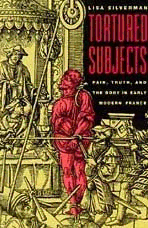
Tortured Subjects: Pain, Truth, and the Body in Early Modern France PDF
282 Pages·2001·11.807 MB·English
Most books are stored in the elastic cloud where traffic is expensive. For this reason, we have a limit on daily download.
Preview Tortured Subjects: Pain, Truth, and the Body in Early Modern France
Description:
At one time in Europe, there was a point to pain: physical suffering could be a path to redemption. This religious notion suggested that truth was lodged in the body and could be achieved through torture. In Tortured Subjects, Lisa Silverman tells the haunting story of how this idea became a fixed part of the French legal system during the early modern period. Looking closely at the theory and practice of judicial torture in France from 1600 to 1788, the year in which it was formally abolished, Silverman revisits dossiers compiled in criminal cases, including transcripts of interrogations conducted under torture, as well as the writings of physicians and surgeons concerned with the problem of pain, records of religious confraternities, diaries and letters of witnesses to public executions, and the writings of torture's abolitionists and apologists. She contends that torture was at the center of an epistemological crisis that forced French jurists and intellectuals to reconsider the relationship between coercion and sincerity, or between free will and evidence. As the philosophical consensus on which torture rested broke down, and definitions of truth and pain shifted, so too did the foundation of torture, until by the eighteenth century, it became an indefensible practice.
See more
The list of books you might like
Most books are stored in the elastic cloud where traffic is expensive. For this reason, we have a limit on daily download.
